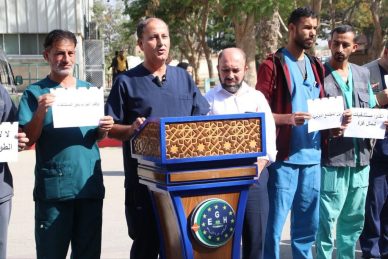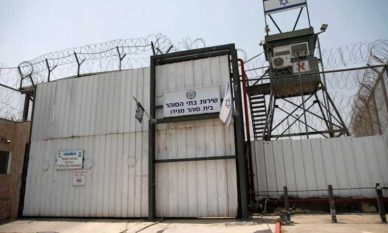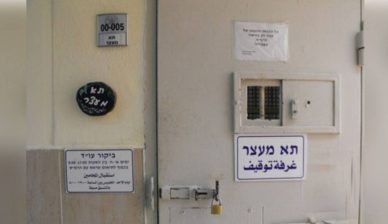GAZA, (PIC)
The spokesperson for the International Committee of the Red Cross (ICRC) in Gaza, Hisham Mahna, described the health situation in northern Gaza as terrifying and extremely critical, and continuously deteriorating, especially following evacuation orders issued by the Israeli occupation forces, which included three hospitals struggling to operate in the northern region.
Mahna explained that “the difficult conditions in Gaza are severely worsening due to ongoing displacement and a lack of humanitarian support, making the situation extremely catastrophic over time.”
In an interview with the “Arabi21” website, he added that the ICRC is facing serious challenges in transferring patients to hospitals, as these facilities are suffering from a severe shortage of essential medical supplies. He noted that after continuous efforts, they were able to evacuate some critical cases a few days ago, but hospitals still need a sustainable supply of medications, fuel, and basic equipment.
Mahna indicated that the Red Cross’s efforts are focused on supporting the health system, providing drinking water, and offering cash-for-work opportunities for those affected, in collaboration with municipalities and health authorities. He pointed out that the humanitarian response faces increasing challenges, as the number of patients and injured exceeds the capacity of hospitals, which have suffered due to years of closures and restrictions on the movement of people and goods.
Suffering of prisoners
The spokesperson for the ICRC in Gaza also mentioned that the Israeli authorities’ decision to prevent Red Cross visits to prisons remains in effect, increasing the suffering of Palestinian families seeking information about their loved ones.
He confirmed that the Red Cross continues to work with the families of thousands of Palestinians reported missing in Gaza to gather important information that helps uncover their fate and whereabouts, saying, “We demand that they be allowed to communicate with their families in accordance with international humanitarian law.”
Mahna also called on the international community to do more to support humanitarian teams and protect infrastructure in the Gaza Strip, urging the concerned parties to “ensure the safe and regular entry of humanitarian supplies to meet the needs of millions of affected civilians in Gaza, where there is still a significant shortage of essential aid.”













